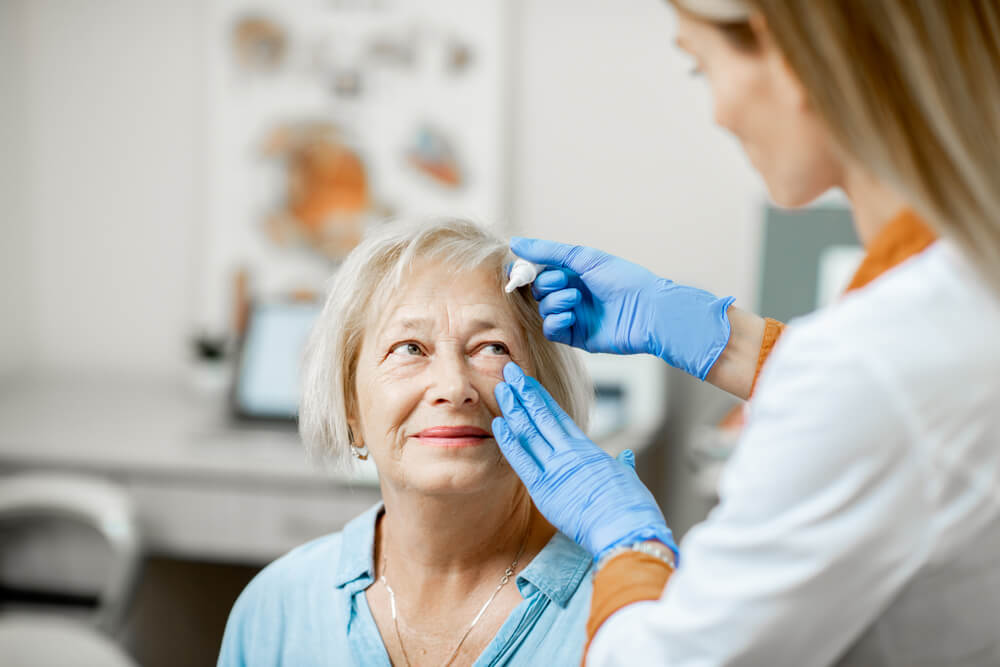Retinal detachment surgery, with key procedures like a scleral buckle or a micro-incisional vitrectomy, is integral to managing retinal detachment. This severe eye condition, if left unchecked, can culminate in vision loss. The crucial question that arises then is – what does the journey of retinal detachment surgery recovery entail? Let’s dive into the retina surgery recovery process, understanding each step, from the immediate aftermath of surgery to life after retinal detachment surgery.

To comprehend the process of retina surgery recovery, a basic understanding of the surgery is essential. The surgery aims to repair the retina, which is the light-sensing tissue in the back of your eye that converts light into signals the brain can understand. Imagine the retina as a movie screen in a theater. When it detaches, it’s as if the screen is falling out of place, leading to a distorted or lost image. Procedures like the scleral buckle or micro-incisional vitrectomy come to the rescue by reattaching the retina, helping to restore vision.
Since the retina is thin, delicate tissue, the eye must be protected after surgery at all times with a protective eye shield and/or protective sunglasses, typically for a minimum of 1 week. Eye drop medications to control postoperative inflammation and reduce the risk of infection are used for the first week and subsequently tapered or discontinued depending on how the healing process is going. Finally, strict adherence to postoperative head positioning is often an important part of retinal detachment surgery. This is because either gas or silicone oil bubbles are commonly used to help keep the retina in place as it heals; proper head positioning enables the buoyancy of the bubble to support the weakest areas in the retina. The best head position is determined by the operating surgeon and is customized to the individual. Adherence to these postoperative instructions can set the pace for the recovery journey.
The detached retina surgery recovery time varies widely from one individual to another because each retinal detachment is unique. It is normal to experience blurriness of vision and some level of discomfort, redness, or irritation around the eye in the first week, which should subside over the ensuing several weeks. The total healing process can take anywhere from a few months to a year, depending on the extent of the detachment. The final visual acuity is dictated by several factors, the most significant of which is the severity of the initial detachment.
The discomfort or pain during the recovery period may seem like stumbling blocks, but they are manageable. Over-the-counter pain relievers can serve as walking sticks, helping you navigate through the discomfort. A cold compress can alleviate the swelling around the eye. However, it’s crucial to consult with your healthcare team before trying any new measures to manage discomfort.
Regular follow-up appointments with your retina specialist will allow your surgeon to monitor your recovery progress, adjust your treatment plan as needed, and answer any questions you might have. They will also determine when it is appropriate to see your general ophthalmologist for various reasons, which may include a refraction (glasses or contact lens adjustment) or cataract evaluation.
After the operation, you may need to make some lifestyle changes to ensure optimal eye health. Perhaps you may have to wear sunglasses more frequently to shield your eyes from harsh sunlight, or you might need to limit strenuous activities for a while to prevent unnecessary strain on the eye. Depending on the degree of residual visual impairment, it may be necessary to make adjustments to daily activities such as work and driving. These are topics you will discuss with your retina specialist at your follow-up appointments.
You may also experience distorted vision after the operation. This can and often improves over time. However, any drastic changes or persistent issues should be brought to the attention of your retina specialist.
During your retinal detachment surgery recovery, there is some potential for complications. This may include infection, inflammation, redetachment, scar tissue (proliferative vitreoretinopathy), increased pressure in the eye (glaucoma), cataracts, and double vision. Any sudden change in discomfort, pain, swelling, or worsening of vision should be reported to your retina specialist promptly so they can be identified and addressed.
The following retinal detachment recovery tips can help you following the operation:
Recovery after retinal detachment surgery often has its ups and downs, but with proper care and an informed approach, it can lead to a successful outcome. Remember, the dedicated team at Mid Atlantic Retina is here to guide and support you at every step in the fight to restore and preserve vision.